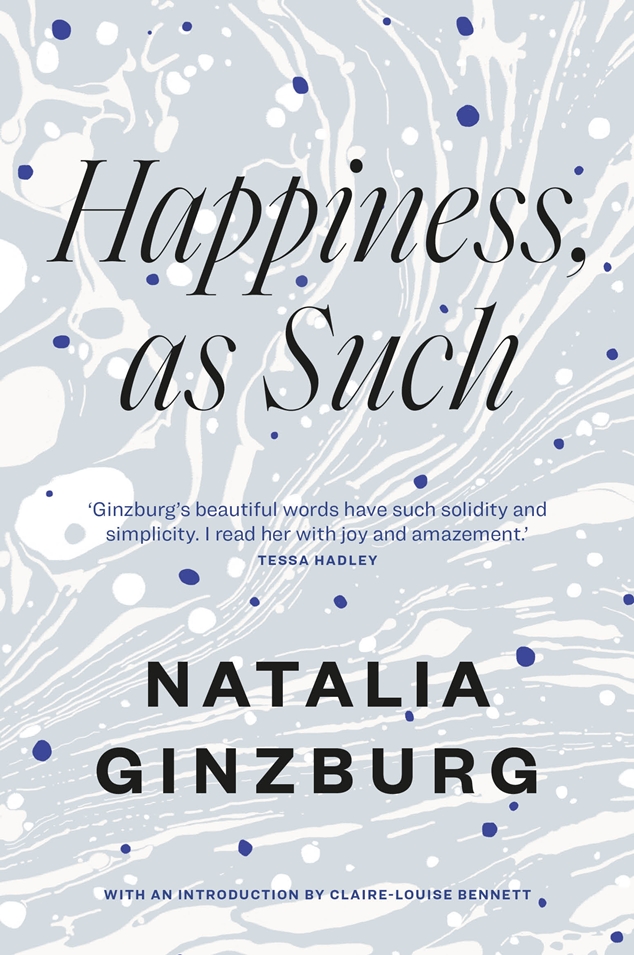 Happiness, as Such
Happiness, as Such
By Natalia Ginzburg
Faber Factory Plus Ffp
Born in 1916 in Palermo, Sicily to a family of left-wing intellectuals, Natalia Ginzberg published her first novel in 1942 under a pseudonym during Fascist Italy’s most anti-Semitic period to circumvent laws banning Jews from publishing. When she died in 1991, she was celebrated as one of Italy’s greatest writers and a new translation of Happiness, as Such has just been reissued.
Ginzberg’s writing centres on families – “where everything starts” she once said, “where the germs grow”. She also wonders if there is such a thing as happiness – “a possibility that we can’t entirely exclude, despite so rarely seeing evidence of it in this world that’s been given to us”.
The novel is told in a series of letters written between members of the extended family in the late 1970s. Adriana writes to her only son, 21 year old Michele who has fled the country, leaving many loose ends. These include debts, Mara who may have just given birth to his child, a male friend who may have been his lover and a mystery surrounding a hidden machine gun.
Adriana pleads, cajoles and bullies Michele to be more forthcoming with his life. In return Michel’s replies are brief and evasive and sometimes he replies to his sister Angelica when he needs favours. There are letters between Michele and Mara who declares that she is not sure of the paternity of her baby son and Michele also write to his best friend Osvaldo.
As with all day-to-day conversations, the happenings are both prosaic and profound. This novel is an example of Italian Neo-Realism which aims to accurately represent lived experiences. It is a way of getting close to the reality of people’s lives and the asphyxiating difficulties everyday people are faced with on a daily basis.
The mood of the book becomes more and more melancholy. As Claire-Louise Bennett says in her introduction to the book, “For page after page our characters exchange comments that are insignificant but pregnant with desolate unhappiness”. The problem with the concept of happiness is that we don’t often recognize it while we are living it, and it is only when looking back with the distance of time that people recognize the happiness.
Lezly Herbert





